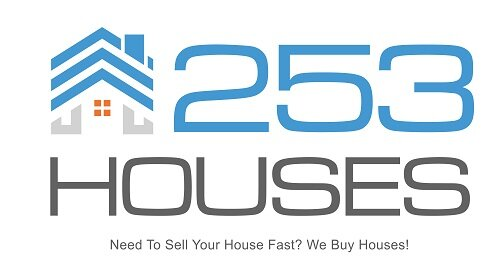Owner financing is a way to purchase a property without going through a bank. The property owner agrees to loan you the money to buy the property, and you agree to repay them over time. This can be a great option if you don’t have the cash available to buy a property outright, or if you don’t qualify for a traditional mortgage.
What is owner financing and how does it work?
Owner financing is a way to purchase a property without going through a bank. The property owner agrees to loan you the money to buy the property, and you agree to repay them over time. This can be a great option if you don’t have the cash available to buy a property outright, or if you don’t qualify for a traditional mortgage.
If you’re interested in owner financing, the best place to start is by talking to the property owner. They’ll be able to tell you if they’re interested in financing the sale and what the terms would be. You can also look for properties that are being offered with owner financing. You can find these listings online or through a real estate agent. Real estate agents are not lawyers and cannot give you legal advice. Buyer pays all closing costs including but not limited to loan origination points, appraisal, title insurance & documentary stamps. Property taxes and homeowners insurance are to be paid by the buyer from day one. If they offer owner financing, a seller will likely require the buyer to carry property insurance. A mortgage lender will require this insurance, which protects the lender’s interest in the property. The policy must name the lender as loss payee. If a promissory note is used in an owner-financed deal, the mortgagee (lender) will want to be sure the note is properly assigned to it. Consumer loan act regulates owner-financed deals where interest rates are determined at the time of the sale. Real estate law states that earnest money is non-refundable if the buyer defaults on the contract.
Owner financing terms
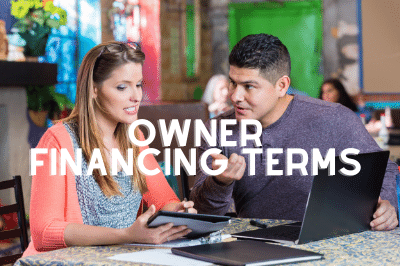
Terms for owner financing can vary greatly, depending on the agreement between the buyer and seller. However, most owner financing contracts will have the following terms:
– The property will be used as collateral for the loan
– The loan must be repaid over a set period of time, often 10-15 years
– Interest will be charged on the loan, which is usually around 10%
– There may be penalties for late or missed payments How do I get started with owner financing? If you’re interested in owner financing, the best place to start is by talking to the property owner. They’ll be able to tell you if they’re interested in financing the sale and what the terms would be. You can also look for properties that are being offered with owner financing. You can find these listings online or through a real estate agent. Finally, always consult with a lawyer before entering into any agreement to make sure you understand the terms of the contract. A real estate attorney can also help you negotiate better terms. Buyer defaults, the owner keeps house and title. Owner financing deals with a down payment, interest rates, amortization period, repayment schedule, and other terms can be flexible and negotiated.
Types of Seller Financing
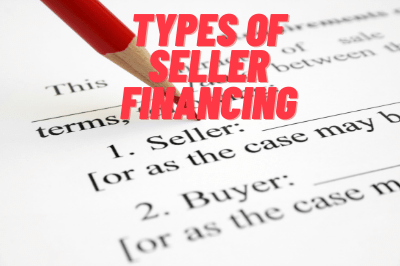
There are two main types of seller financing:
– Land contract: In a land contract, the seller agrees to loan you the money to buy the property, and you agree to repay them over time. The title to the property will remain with the seller until the loan is paid off.
– Contract for deed: In a contract for deed, the seller agrees to transfer ownership of the property to you once the loan is paid off. This can be a good option if you want to own the property outright but don’t have the cash available to buy it outright.
Pros and Cons of Owner Financing
Key takeaways Owner financing offers several benefits over traditional mortgages, such as:
– No credit check is required
– Can be used to purchase a property that you wouldn’t normally be able to afford
– Monthly payments can be more affordable than traditional mortgages
However, owner financing also has a few drawbacks, including:
– The property will be used as collateral for the loan
– The loan must be repaid over a set period of time, often 10-15 years
– Interest will be charged on the loan, which is usually around 10%
– There may be penalties for late or missed payments
As with any type of financing, it’s important to weigh the pros and cons of owner financing before entering into an agreement.
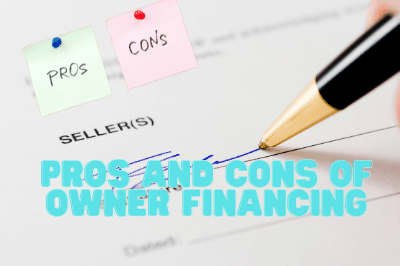
Why sell a property with owner financing?
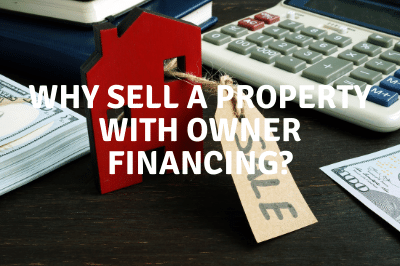
Owner financing can be a great way to sell your property. It allows you to keep the property in your name and collect payments over time, rather than having to go through a bank or other financial institution. It can also be a good option for buyers who may not qualify for a traditional mortgage. With owner financing, the buyer makes payments directly to the seller, rather than to a bank.
If you’re considering selling your property with owner financing, there are a few things you should know. In Washington state, there are some specific rules and regulations that apply to owner financing arrangements. First of all, it’s important to understand that owner financing is not the same as rent-to-own. In a rent-to-own situation, the tenant pays rent to the landlord, and a portion of that rent is applied towards the purchase price of the property. The tenant does not actually own the property until they’ve paid the full purchase price, at which point they can get a mortgage to finance the balance.
With owner financing, on the other hand, the buyer actually owns the property from day one. The seller acts as the bank and holds onto the deed to the property until the loan is paid in full. The buyer makes payments directly to the seller, and once the loan is paid off, the deed is transferred to the buyer. The seller does not have to become a licensed Mortgage Loan Originator (MLO) in order to offer owner financing. Selling real estate to a real estate investor offers numerous benefits for the seller.
The first and most obvious benefit is that you’ll be able to sell the property much more quickly.
Want to sell your property in Washington State fast?
Instead of selling the house with a real estate broker or getting a real estate agent, you can try and sell it to us instead! The process of selling your property can be difficult. There are many considerations to take into account and the right decisions need to be made at every step for things to go smoothly. If you would like more information about any specific aspect of what is required during the sell-a-home process whether shared or not please do not hesitate to reach out, 253 Houses can most certainly help you! Just Fill up the form below, or call us at (253) 330-8228 and you will receive a cash offer for your home within 24 hours, with no hidden fees or closing costs, all in its fair market value. We want your experience going through this challenging time as smooth as possible.
